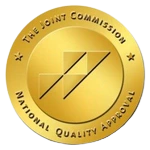How to Help a Partner with Addiction
Supporting a partner through addiction recovery is both one of the most difficult and most meaningful challenges you may face.
Watching someone you care about struggle with addiction can leave you feeling helpless, unsure of how to begin helping them, or even how to protect your own well-being along the way.
Recognizing that addiction is a disease and not a choice can completely change how you approach the situation.
Addiction alters the brain’s chemistry, making it far more complex than simply “choosing” to stop. That’s why your role as a supportive partner is so critical to the recovery process.
Whether you’re working through helping someone with drug and alcohol problems or learning how to support your partner with alcohol or drug addiction, you’ll gain valuable tools for communicating effectively, setting healthy boundaries, and encouraging positive change.
Helping someone recover from addiction isn’t easy, but with the right support and understanding, it’s absolutely possible. In the pages ahead, we’ll walk you through how to help your partner or spouse with addiction—and share resources to support both of you along the way.
Understanding the Impact of Addiction on Relationships
Addiction doesn’t just affect the individual battling it—it profoundly impacts relationships, often creating a cycle of emotional withdrawal, trust issues, and communication breakdowns.
Partners in relationships with someone struggling with addiction often feel neglected, hurt, and frustrated as the addicted person’s focus shifts from their relationship to their substance of choice.
Emotional intimacy can be lost, and the constant fear of betrayal or disappointment can take a heavy toll on both parties.
One of the most damaging dynamics in relationships affected by addiction is codependency.
This is when one partner enables the addictive behavior, either intentionally or unintentionally.
For example, a partner might cover up their loved one’s mistakes, lie to protect them, or take on more responsibilities to compensate for the addiction.
While this may seem like a way to support or protect the addicted person, it actually enables the addiction to continue. It prevents the addicted partner from facing the consequences of their behavior, which is crucial for their recovery.
Over time, enabling behaviors can create an unhealthy cycle that makes it even harder for both partners to break free.
The non-addicted partner also carries emotional burdens that are often overlooked.
Feelings of shame, guilt, and frustration can arise when a partner struggles to understand the addiction, leading them to feel like they’re not doing enough or that they somehow share the blame.
They may blame themselves for the problems in the relationship or feel guilty for needing time for themselves.
It’s important to acknowledge these feelings and seek the proper support, whether through therapy or support groups.
Addiction can even lead to serious consequences like divorce or relationship breakdowns if left unaddressed. The strain of living with addiction can reach a breaking point, leaving both partners feeling isolated and exhausted.

The First Step—Recognizing the Signs and Starting the Conversation
Helping a partner with addiction begins with recognizing the signs that something is wrong.
Addiction can show up in many ways, and it’s not always obvious at first. Paying attention to changes in behavior, emotions, and physical health is crucial.
Some of the more common signs include frequent mood swings, secrecy, neglecting responsibilities, financial troubles related to substance use, and emotional withdrawal from loved ones.
Physical signs—like noticeable changes in appearance, poor hygiene, or health issues tied to drug or alcohol use—can also signal a deeper problem.
Once you recognize that your partner may be struggling with addiction, the next and often most difficult step is starting the conversation. It’s not easy to bring up such a sensitive subject with someone you love, but approaching it with empathy makes all the difference.
- Aim to create a calm, supportive space. Speak gently, using non-judgmental language that shows concern, not frustration.
- Avoid blaming language or issuing ultimatums, which can make your partner feel attacked and defensive. Your goal is to invite openness, not to escalate fear or shame.
- Let your partner know you’re on their side and willing to walk through the process with them. You might say, “I care about you and want to help you find the right support. Let’s explore treatment options together.”
- It’s also important to clearly convey that you see addiction for what it is—a medical condition that requires real help, not a moral failure.
Having a calm, compassionate conversation is a powerful way to encourage your partner to seek help without making them feel alienated or judged.
Encouraging Your Partner to Seek Professional Help
Encouraging your partner to get professional help for addiction can be a delicate process. It’s necessary to approach this conversation with empathy and support, and not forcefulness.
When discussing treatment options, avoid making demands or issuing ultimatums, as this can lead to resistance.
Instead, offer support and share your concerns calmly.
For example, you might say, “I know this is difficult, but I really think you’ll feel better with the right help. I’m here to support you every step of the way.”
One of the most important aspects of successful addiction treatment is the involvement of both partners in the process. When you and your partner approach rehab as a team, it shows that you’re committed to recovery together. Being actively involved in the rehab process can strengthen your relationship and improve the chances of long-term success.
You can attend family counseling sessions together, participate in support groups like Al-Anon, or engage in therapy to better understand addiction and how it affects both of you.
- Therapy usually plays a central role in addiction recovery, as it helps individuals uncover the emotional and psychological factors contributing to their addiction.
- Family counseling is equally important—it allows both partners to rebuild trust, improve communication, and address the dynamics that addiction has caused in the relationship.
- Support groups also provide invaluable benefits, offering a network of people who understand the recovery process firsthand.
What to Expect During Rehab—And How to Support Your Partner
At Tulip Hill Recovery, we specialize in treating a wide range of substance disorders and co-occurring conditions.
Rehabilitation is a comprehensive process that involves several key phases: detox, therapy, and ongoing recovery. For your partner, understanding each phase can help both of you stay grounded throughout the journey.
The Detox Phase
The first phase is detox, where your partner will begin the process of cleansing their body of the substance they’ve been addicted to.
This can be physically demanding, as withdrawal symptoms often occur, but it’s a necessary step in the recovery process. Medical supervision during detox ensures that this phase is as safe and comfortable as possible.
The Therapy Phase
Once detox is complete, your partner will move into therapy, both individual and group therapy.
This is where deeper emotional work begins. In therapy, they’ll confront the psychological aspects of their addiction, such as underlying trauma, negative thought patterns, and unhealthy behaviors.
Therapy also helps your partner learn how to cope with triggers, manage stress, and build emotional resilience.
The therapeutic work is critical to long-term recovery, and it’s essential for healing both the mind and body.
Aftercare to Support Ongoing Recovery
Finally, recovery continues even after rehab ends. Recovery is a lifelong process that includes ongoing support through outpatient therapy, support groups, and community involvement. Your partner will need a strong support network, and it’s important to be part of that network.
During rehab, staying connected with your partner is essential. If allowed, visit them regularly and participate in family therapy sessions.
Open, honest communication will help both of you stay connected and build trust during this challenging time. Encourage your partner by acknowledging the effort they’re putting into their recovery.
Celebrate small victories, such as a successful day of sobriety or breakthroughs in therapy. These moments of progress deserve recognition, as they help boost morale and reinforce the positive changes happening in your partner’s life.
Conditions We Treat at Tulip Hill Recovery:
-
Alcohol Use Disorder
Alcohol dependence can lead to serious physical and psychological health complications, including liver damage, cognitive impairment, and emotional instability.
At Tulip Hill, medically supervised detox helps individuals safely withdraw from alcohol while clinical therapy and relapse prevention strategies ensure long-term sobriety.
-
Opioid Addiction(Heroin, Fentanyl, Painkillers)
We treat addiction to heroin, fentanyl, and prescription opioids such as oxycodone and hydrocodone.
Treatment includes safe detox coordination, trauma-informed therapy, and relapse prevention, with medication-assisted treatment (MAT) available when clinically appropriate.
-
Methamphetamine
Stimulant addiction affects energy levels, mental health, and impulse control. We provide behavioral therapies like Cognitive Behavioral Therapy (CBT) to help individuals manage cravings and rebuild healthy habits.
These substances can create serious long-term effects on brain function, mood, and overall health. Our program helps clients stabilize, regulate emotions, and rebuild mental clarity through structured therapy and holistic support.
-
Benzodiazepine Dependence
These drugs are commonly prescribed for anxiety but are highly addictive. Our program helps clients safely taper off benzos with medical supervision while developing alternative coping strategies.
Benzodiazepine withdrawal can be dangerous without proper care, which is why we offer carefully coordinated treatment to help clients taper safely while learning how to manage anxiety or panic in healthier ways.
-
Polysubstance Use
Many individuals we work with don’t just struggle with one substance—they use multiple, often to balance or mask the effects of another. Polysubstance use is complex and requires an integrated treatment approach.
We assess each client’s unique combination of substances and tailor a recovery plan to support detox, stabilization, and long-term healing.
-
Dual Diagnosis and Co-Occurring Mental Health Conditions
Addiction and mental health go hand in hand for many people.
At Tulip Hill Recovery, we specialize in dual diagnosis treatment for clients who also struggle with conditions such as:
- Depression
- Anxiety disorders
- Post-traumatic stress disorder (PTSD)
- Bipolar disorder
- Panic disorder
Our team of licensed therapists and medical professionals works together to treat the addiction and the underlying mental health conditions, ensuring each client receives complete and compassionate care.
Reintegration After Rehab—What to Do When They Come Home

The period after rehab when your partner returns home can be one of the most challenging stages of recovery. After spending time in a structured, supportive environment, stepping back into everyday life can quickly feel overwhelming.
Your partner will face new pressures, old triggers, and the ongoing work of adapting to a life without substances. That’s why it’s crucial for both of you to be prepared and to build a home environment that supports long-term sobriety.
One of the first and most important steps is creating a sober-friendly space. This means removing any alcohol, drugs, or other triggering items from your home.
Even seemingly harmless reminders like barware or old prescriptions can spark cravings.
It’s also wise to minimize outside stressors that could jeopardize recovery.
This might include setting clear boundaries with friends or family members who don’t support your partner’s sobriety or taking steps to ease daily pressures whenever possible.
Building healthy routines is equally important.
Creating a simple, consistent schedule like regular meals, exercise, therapy appointments, or evening check-ins can offer a sense of stability during an otherwise unpredictable transition. Structure helps reduce the chaos and anxiety that can sometimes lead to relapse.
Emotional support is another aspect of reintegration.
Understand that frustration, doubt, or emotional setbacks are normal parts of the recovery process.
If your partner struggles or even relapses, meet them with compassion, not judgment, and encourage them to stay connected to therapy, aftercare services, or support groups.
Continued treatment is essential for navigating this next chapter successfully.
Finally, it’s just as important to protect your own well-being. As the non-addicted partner, attending a support group like Al-Anon can give you tools to maintain healthy boundaries, manage your own emotions, and prevent burnout.
Supporting someone through recovery can be exhausting at times, and taking care of yourself isn’t just good for you, it’s essential for both of you to move forward..
The Importance of Setting Boundaries and Practicing Self-Care
When you’re helping someone with drug and alcohol problems, it’s crucial to establish and maintain healthy boundaries.
Addiction often leads to enabling behaviors where the non-addicted partner might feel the need to “rescue” or cover for their loved one.
While this comes from a place of love and concern, it can actually perpetuate the addiction by shielding your partner from the natural consequences of their actions.
Setting boundaries isn’t about being harsh or unloving. It’s about ensuring that you aren’t sacrificing your own well-being in the process. Healthy boundaries can look like:
Refusing to provide financial support if it’s being used for substances.
Not enabling negative behaviors, such as lying or manipulation.
Avoiding toxic interactions that encourage your partner’s addiction, like hanging out with people who enable their behavior.
These boundaries allow you to maintain a sense of self and avoid becoming emotionally enmeshed in your partner’s struggles.
It’s important to remember that emotional distance doesn’t mean cutting off support—it means offering encouragement and love while allowing your partner to take responsibility for their own recovery.
Self-care means taking time for yourself to recharge, pursue hobbies, and stay connected with your own support system. This is essential for preventing burnout and helping you remain a strong, supportive partner.
Resources like therapy, support groups (such as Al-Anon), and education on addiction can also provide invaluable tools for the non-addicted partner.
Related Blog Resources
At Tulip Hill Recovery, we believe that education is a powerful tool in recovery. To help you better understand the effects of addiction and the path to healing, we’ve created several in-depth resources you can explore:

The Long-Term Journey of Recovery
Recovery is a long-term journey, and it’s important to understand that relapse can be part of that journey. While it’s natural to feel discouraged if your partner relapses, it doesn’t mean they’ve failed or that the progress they’ve made is lost.
Recovery is about consistent growth, and setbacks can be an opportunity for learning, reflection, and renewed commitment to sobriety.
Supporting your partner with alcohol or drug addiction during this time is crucial for maintaining momentum in their recovery.
It’s important to stay involved in your partner’s recovery without micromanaging or becoming overly involved in their every decision.
They need the space to take responsibility for their choices and continue building their independence in sobriety. As a partner, your role is to offer encouragement, celebrate victories, and provide emotional support while allowing your partner to manage their recovery process.
Ongoing therapy, support groups, and open communication are essential for long-term success. Therapy provides your partner with a safe space to address issues and develop coping mechanisms, while support groups offer a community of people who understand the recovery process.
As a couple, it’s vital to keep communication open about feelings, challenges, and progress.
Get Directions to Tulip Hill Recovery
Staying in the same environment where addiction originally develops can make it harder to break old patterns. Seeking addiction treatment away from home can be one of the best decisions for your long-term recovery.
Benefits of Going to Murfreesboro for Rehab:
- Privacy & anonymity—stepping away from familiar surroundings allows individuals to focus on healing without outside pressures.
- Fewer local triggers—avoiding the same social circles and environments that contributed to substance use can reduce the risk of relapse.
- A fresh start—being in a new setting can shift perspective and help individuals fully commit to the recovery process.
Tulip Hill Recovery is just a short drive from Brentwood, but the change in environment significantly affects recovery success.
FAQ: How to Help a Partner with Addiction
Addiction rarely stays contained to the person using substances. It often changes the emotional climate of a relationship, creating patterns of withdrawal, broken trust, and frequent misunderstandings. Many partners describe feeling neglected or replaced, especially when the addicted person’s priorities shift toward getting, using, or recovering from substances.
Communication often suffers. Conversations can become tense, defensive, or avoidant, and emotional intimacy may fade. The non-addicted partner may begin living in a constant state of worry, unsure what to expect day to day. That stress can build into resentment, exhaustion, and a sense of isolation even within the relationship.
Another common impact is a cycle where one partner unintentionally takes on more responsibility to “keep things together.” This can lead to an unhealthy dynamic that makes it harder for both people to feel safe and connected. Over time, untreated addiction can push a relationship toward serious consequences, including separation.
Understanding these patterns is important because it helps you respond with clarity instead of reacting only to the latest crisis. When you recognize how addiction affects your relationship, you can take practical steps that support change while also protecting your well-being.
Addiction can show up gradually, and the early signs are not always obvious. Changes in mood are often one of the first clues. Frequent mood swings, increased irritability, emotional withdrawal, and secrecy can signal that something deeper is happening. You might also notice your partner becoming less present, less engaged, or unusually distant.
Behavioral shifts can appear in daily responsibilities. Neglecting work, family obligations, or household tasks may become more common. Financial problems connected to substance use can also show up, such as unexplained spending, missing money, or new conflicts around bills and budgeting.
Physical changes can be another warning sign. Some people experience noticeable shifts in appearance, reduced self-care, poor hygiene, or health problems that seem linked to alcohol or drug use. These signs may come and go, which can make them easier to dismiss, especially when your partner has moments of normal functioning.
Looking for patterns matters more than focusing on one isolated event. If multiple signs are present and the situation is impacting daily life or your relationship, it may be time to have a calm, supportive conversation and begin exploring professional help.
The way you begin the conversation can make a major difference in whether your partner feels attacked or supported. Choose a time when the environment is calm and your partner is more likely to be receptive. Your goal is to create safety, not conflict, so approaching with empathy is key.
Use gentle, non-judgmental language that focuses on concern rather than blame. Avoid accusations, harsh labels, or ultimatums that can trigger defensiveness. Instead of trying to “win” the conversation, aim to invite openness. A supportive statement that communicates care and willingness to help can lower resistance and reduce shame.
It also helps to be clear about what you’re seeing. Mention specific changes you’ve noticed in behavior, emotions, or health rather than making broad statements about character. Keep your tone steady and compassionate, even if the topic feels painful.
Most importantly, recognize addiction as a medical condition that requires real help. When you frame it that way, the conversation becomes less about blame and more about support and solutions. Even if your partner is not ready immediately, a calm conversation can plant a meaningful seed and open the door for next steps.
Encouraging treatment is often a delicate balance. If the conversation feels like a demand, your partner may shut down or become more secretive. A more effective approach is to express your concerns calmly, communicate that you care, and offer support in taking the next steps.
Try focusing on partnership rather than control. You can communicate that you want to face this together and that you believe getting help could improve how your partner feels and how the relationship functions. Avoid threats or pressure-based tactics that escalate fear or shame, especially early in the process.
Being involved can also strengthen outcomes. When both partners approach treatment as a shared effort, it reinforces that recovery is not happening in isolation. Support may include joining family counseling sessions, participating in a support group, or attending therapy yourself to better understand how addiction affects both of you.
You can also help by reducing barriers. Offering to explore treatment options together or helping with practical planning can make the idea feel less overwhelming. Your role is not to solve addiction for your partner, but to encourage professional care while staying grounded, consistent, and compassionate.
Rehab is often a multi-phase process, and understanding the phases can help you support your partner in a more steady, realistic way. Many people start with detox, which is the period when the body clears substances and withdrawal symptoms may occur. This phase can be physically demanding, and medical supervision can help it be safer and more manageable.
After detox, therapy becomes the central focus. Treatment often includes individual and group therapy where deeper emotional work happens. Your partner may explore underlying trauma, unhelpful thought patterns, and behaviors that have reinforced substance use. They will also work on coping skills for triggers, stress, and emotional discomfort.
Recovery does not end when rehab ends. Aftercare and ongoing support are part of maintaining progress. This may include outpatient therapy, support groups, and consistent community involvement. During this time, staying connected can matter. If permitted, regular visits and participating in family therapy sessions can support healing and rebuild trust.
You can help by acknowledging effort and recognizing progress in small, meaningful ways. Encouragement, patience, and honest communication can strengthen your relationship while your partner does the long-term work of recovery.
A supportive home environment can reduce relapse risk and help your partner stay grounded during the vulnerable transition after rehab. One important step is creating a sober-friendly space. Removing alcohol, drugs, and other triggers from the home can make daily life feel safer and less tempting. Even items that seem harmless, such as certain reminders or old prescriptions, can sometimes spark cravings.
Reducing outside stressors also helps. That may mean setting clearer boundaries with people who do not support sobriety or adjusting routines to make daily life more stable. A consistent structure can support recovery, especially when your partner is learning new coping strategies and building emotional resilience.
Healthy routines matter as much as removing triggers. Encouraging steady sleep patterns, balanced daily structure, and supportive activities can strengthen recovery over time. Progress is often built through repeatable habits rather than one-time breakthroughs.
If a setback happens, responding with compassion is important. Relapse can be part of a longer recovery journey, and staying connected to therapy, aftercare services, and support groups can help your partner regain stability. You can support accountability while still keeping your approach calm, steady, and focused on long-term growth.
Codependency is a relationship dynamic where one partner becomes overly focused on managing, rescuing, or protecting the other, often at the cost of their own well-being. In relationships affected by addiction, this can show up as covering up mistakes, lying to protect your partner, taking on extra responsibilities, or preventing them from experiencing the consequences of substance use.
These behaviors usually come from love and fear. You may want to protect your partner from embarrassment, job loss, family conflict, or emotional pain. But over time, rescuing can keep addiction in place by making it easier to continue using without accountability. When consequences are consistently softened, urgency for change can shrink.
Codependency can also create emotional burnout. The non-addicted partner may carry shame, guilt, and frustration while feeling responsible for fixing the situation. That pressure can become overwhelming and can make the relationship feel unstable and exhausting for both people.
Breaking this cycle often starts with recognizing it. You can still support your partner without shielding them from reality. Support becomes healthier when it includes clear boundaries, honest communication, and respect for personal responsibility. That shift can protect you emotionally while also reinforcing the seriousness of recovery.
Healthy boundaries are essential when supporting a partner with addiction. Without boundaries, it is easy to slip into rescuing behaviors that protect the addiction more than the person. Boundaries might include refusing to provide financial support if it is being used for substances, not participating in manipulation or dishonesty, and stepping away from toxic interactions that reinforce harmful patterns.
Boundaries are not about punishment. They are about keeping your life stable and preventing emotional enmeshment where your well-being becomes dependent on your partner’s choices. You can offer love and encouragement while still allowing your partner to take responsibility for recovery.
Self-care is part of the same strategy. Supporting someone through recovery can be exhausting, and burnout helps no one. Self-care can include taking time to recharge, staying connected to your own support system, and pursuing activities that keep you emotionally balanced. Many partners benefit from support groups that help them manage stress, maintain boundaries, and feel less isolated.
When you protect your well-being, you show up as a more consistent and stable support. This also helps the relationship move forward in a healthier way, because recovery becomes a shared journey supported by clarity, structure, and emotional resilience.
Supporting a Spouse or Partner in Murfreesboro, Tennessee | Tulip Hill Recovery
Addiction within a relationship can create emotional strain, broken trust, financial stress, and communication breakdowns. If your partner is struggling with substance use, it is important to approach the situation with clarity, boundaries, and professional support.
Avoid enabling behaviors such as covering up consequences, making excuses, or providing financial support that sustains substance use. Instead, focus on expressing concern, encouraging treatment, and setting healthy boundaries that protect your own well-being.
Partners often experience anxiety, resentment, fear, or codependency patterns. Seeking counseling or support groups for yourself can strengthen your ability to respond in a healthy way.
Tulip Hill Recovery in Murfreesboro, TN offers comprehensive addiction treatment programs, including detox, residential rehab, and outpatient care. Family therapy is also available to help rebuild trust and improve communication once treatment begins.
Recovery is possible with professional intervention and structured support.
Confidential admissions specialists are available 24/7 to help you explore treatment options.
The content available on Tulip Hill Recovery pages is designed to provide educational information related to addiction, detoxification, rehabilitation, and recovery. This information should not be interpreted as professional medical advice or treatment recommendations.
Addiction treatment is highly individualized. Detox and rehab needs vary significantly based on health history, substance use patterns, and mental health considerations. Information provided is general and may not apply to all individuals.
If an emergency arises — such as overdose, severe withdrawal symptoms, or immediate danger — call 911 without delay. Online resources are not a substitute for emergency medical care.
Medical detox should always be conducted under professional supervision. Attempting detox without medical oversight can be dangerous.
Insurance information is provided as general guidance only. Coverage varies by plan and carrier. Tulip Hill Recovery encourages all individuals to verify benefits directly with admissions staff.
Recovery outcomes are not guaranteed. Treatment effectiveness depends on many factors including engagement, clinical needs, and aftercare support.
References to external resources do not imply endorsement. Tulip Hill Recovery is not responsible for third-party content.
Website use does not establish a provider-patient relationship.
All content published on Tulip Hill Recovery website pages is provided for informational purposes only and should not be interpreted as medical, psychological, or legal advice. This information is not intended to diagnose, treat, cure, or prevent any disease or condition and should not replace consultation with licensed healthcare professionals.
Addiction is a chronic, relapsing medical condition that requires individualized care. Treatment approaches, detox protocols, and rehabilitation services vary depending on numerous factors unique to each individual. No information on this website should be relied upon to make treatment decisions without professional guidance.
If you are experiencing an emergency situation, including overdose, withdrawal complications, suicidal ideation, or immediate risk to yourself or others, call 911 immediately. Tulip Hill Recovery does not provide emergency medical services online or via website communication.
Never attempt to discontinue substance use or begin detox without proper medical supervision. Withdrawal can cause serious medical complications. Any information regarding detoxification is general in nature and does not substitute for physician-directed care.
Insurance information presented on this website is intended solely to assist users in understanding potential coverage options. Coverage is subject to verification, medical necessity determinations, and policy limitations. Tulip Hill Recovery encourages direct contact with our admissions specialists to confirm benefits and eligibility.
We do not guarantee treatment outcomes, length of stay, insurance approvals, or placement availability. Outcomes depend on numerous clinical and personal factors.
External links are provided for convenience and informational purposes only. Tulip Hill Recovery assumes no responsibility for third-party content or practices.
Use of this website does not establish a doctor-patient or therapist-patient relationship. Recovery requires professional support and individualized care.
Moving Forward Together with Tulip Hill Recovery
If you or someone you love is struggling with addiction, don’t wait another day to take that first step. At Tulip Hill Recovery, we provide the compassionate care and clinical expertise you need to reclaim your life and start fresh.
At Tulip Hill Recovery in Murfreesboro, we provide compassionate, evidence-based care that helps individuals overcome addiction and rebuild their lives.
Whether you need detox, structured treatment, or ongoing support, our team is here to guide you every step of the way.
 |
Medically Reviewed By:
Board-Certified Psychiatrist and Addictionologist
|
 |
Clinically Reviewed By:
Board Certified Clinical Social Worker
|
Our Verifications & Affiliations
Yes, Your Insurance Covers Detox and Rehab Treatment.
Get Family Support Now
Supporting Families Through Recovery
We understand addiction affects the whole family. Our comprehensive family program helps rebuild trust and restore relationships.
Weekly Family Therapy Sessions
Educational Workshops
Support Groups
Communication Skills Training












